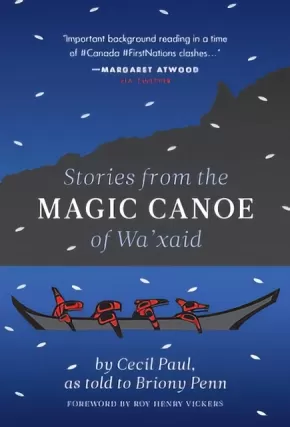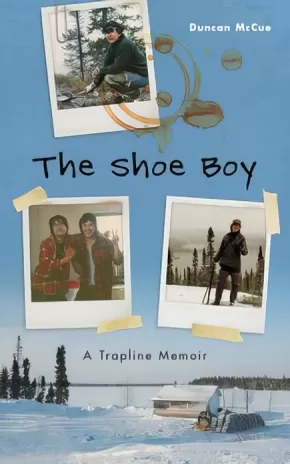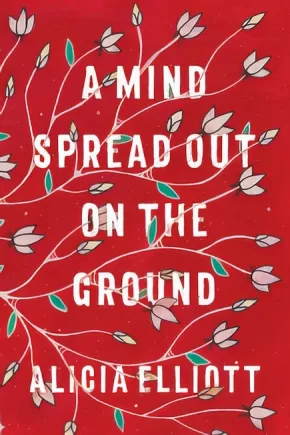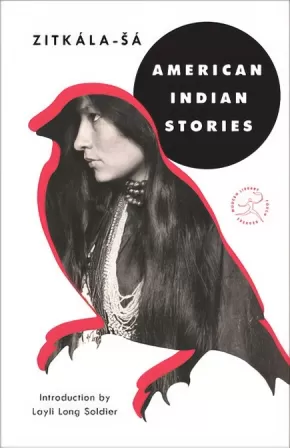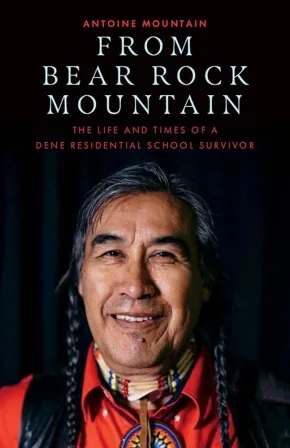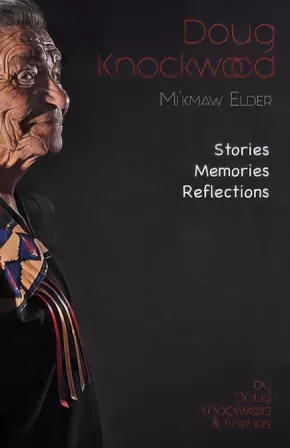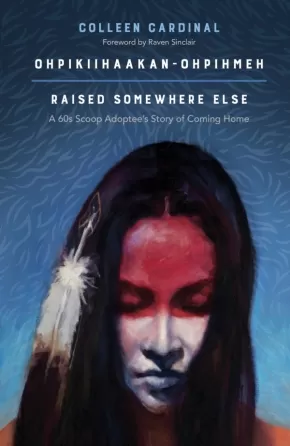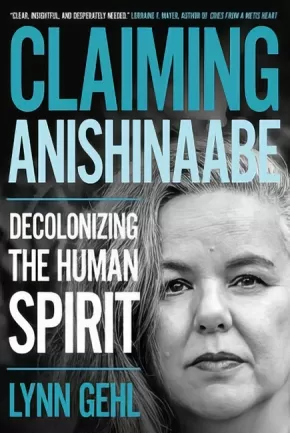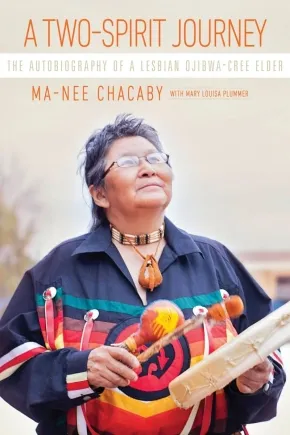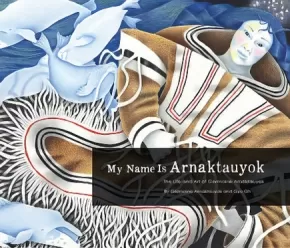
Autobiographies
46
-
60
of
73 Results;
Sort By
Go To
of 5
One Earth: People of Color Protecting Our Planet
$24.95
Format:
Paperback
Text Content Territories:
Indigenous;
ISBN / Barcode: 9781459818866
Synopsis:
Synopsis:
One Earth profiles Black, Indigenous and People of Color who live and work as environmental defenders. Through their individual stories, the book shows that the intersection of environment and ethnicity is an asset to achieving environmental goals. The twenty short biographies introduce readers to diverse activists from all around the world, who are of all ages and ethnicities. From saving ancient trees on the West Coast of Canada, to protecting the Irrawaddy dolphins of India, to uncovering racial inequalities in the food system in the United States, these environmental heroes are celebrated by author and biologist Anuradha Rao, who outlines how they went from being kids who cared about the environment to community leaders in their field. One Earth is full of environmental role models waiting to be found.
Reviews
“Thought-provoking reading for young people figuring out their own contributions. This valuable compilation shows that Earth’s salvation lies in the diversity of its people.”— Kirkus Reviews, starred review
“Rao shines a light on the too often unacknowledged role played by People of Colour in the green movement. This is a book to be celebrated and shared!”— Elizabeth May, former leader of the Green Party of Canada
“One Earth is so important today because it acknowledges the diversity of our environmental defenders and warriors and reminds us that the environment has no borders. Thank you, Anu, for identifying these amazing eco-champions. Their experience and dedication to making sure the environment is our number one priority is an invaluable gift to Canada and the world.”— Winnie Ming Yue Hwo, Senior Public Engagement Specialist, David Suzuki Foundation
Educator Information
Recommended for ages 12+
Contains 20 short biographies of Black, Indigenous and People of Color (BIPOC) in the environmental movement.
Offers a positive approach to environmental issues with a focus on environmental successes.
Written in a readable and accessible voice, One Earth presents diverse role models for youth and readers of all ages.
Keywords / Subjects / Themes: Black, Indigenous, and People of Color (BIPOC), environmentalists, changemakers, conversation, diversity, biographies, #ownvoices.
Text Content Territory Note: This book has received the Indigenous text content territory label because it contains some profiles of Indigenous environmental defenders, but not all people profiled in this work are Indigenous.
Additional Information
208 pages | 6.00" x 8.50"
Stories from the Magic Canoe of Wa'xaid (PB)
$25.00
Format:
Paperback
Text Content Territories:
Indigenous Canadian; First Nations; Haisla (Kitamaat); Xenaksiala (Henaksiala);
ISBN / Barcode: 9781771603379
Synopsis:
Synopsis:
A remarkable and profound collection of reflections by one of North America’s most important Indigenous leaders.
My name is Wa’xaid, given to me by my people. ‘Wa’ is ‘the river’, ‘Xaid’ is ‘good’ – good river. Sometimes the river is not good. I am a Xenaksiala, I am from the Killer Whale Clan. I would like to walk with you in Xenaksiala lands. Where I will take you is the place of my birth. They call it the Kitlope. It is called Xesdu’wäxw (Huschduwaschdu) for ‘blue, milky, glacial water’. Our destination is what I would like to talk about, and a boat – I call it my magic canoe. It is a magical canoe because there is room for everyone who wants to come into it to paddle together. The currents against it are very strong but I believe we can reach that destination and this is the reason for our survival. —Cecil Paul
Who better to tell the narrative of our times about the restoration of land and culture than Wa’xaid (the good river), or Cecil Paul, a Xenaksiala elder who pursued both in his ancestral home, the Kitlope — now the largest protected unlogged temperate rainforest left on the planet. Paul’s cultural teachings are more relevant today than ever in the face of environmental threats, climate change and social unrest, while his personal stories of loss from residential schools, industrialization and theft of cultural property (the world-renowned Gps’golox pole) put a human face to the survivors of this particular brand of genocide.
Told in Cecil Paul’s singular, vernacular voice, Stories from the Magic Canoe spans a lifetime of experience, suffering and survival. This beautifully produced volume is in Cecil’s own words, as told to Briony Penn and other friends, and has been meticulously transcribed. Along with Penn’s biography of Cecil Paul, Following the Good River, Stories from the Magic Canoe provides a valuable documented history of a generation that continues to deal with the impacts of brutal colonization and environmental change at the hands of politicians, industrialists and those who willingly ignore the power of ancestral lands and traditional knowledge.
Reviews
“The Magic Canoe brings peace to one’s soul. It is a warm wind moving our hearts. Wa’xaid takes us on a journey that regenerates and empowers us. T’ismista, the stone hunter, looks down on the Magic Canoe and reminds us to listen to storytellers like Cecil Paul. This is a story for the family of man; we are all in the canoe together and our stories need to be shared with each other.” – Roy Henry Vickers
Educator Information
Recommended in the Canadian Indigenous Books for Schools 2019-2020 resource list, as well as the 2020-2021 resource list, for grades 9 to 12 for English Language Arts, Social Studies, and Science.
Additional Information
224 pages | 5.00" x 7.00" | Paperback
Sunflower's Story
$10.95
Format:
Paperback
Text Content Territories:
Indigenous Canadian;
ISBN / Barcode: 9781926696843
Synopsis:
Synopsis:
A personal account of a young Indigenous girl who experiences intolerance, a sense of not belonging and family struggles. She learns from her grandfather the traditional ways of ceremony and fasting to go beyond the needs of the body to where she begins to know her higher self.
Educator & Series Information
Recommended for ages 13 to 18.
This book is part of the Finding Waka series.
Keywords / Themes: Acceptance, Anxiety, Ceremony, Family, Fasting, Growth, Healing, Spirituality, Racism, Intolerance.
Additional Information
52 pages | 6.00" x 9.00" | Paperback
The Shoe Boy: A Trapline Memoir
$19.95
Format:
Paperback
Text Content Territories:
Indigenous Canadian; First Nations; Anishinaabeg; Cree (Nehiyawak); James Bay Cree;
ISBN / Barcode: 9780774880572
Synopsis:
Synopsis:
At the age of seventeen, an Anishinabe boy who was raised in the south joined a James Bay Cree family in a one-room hunting cabin in the isolated wilderness of northern Quebec. In the five months that followed, he learned a way of life on the land with which few are familiar, where the daily focus is on the necessities of life, and where both skill and finesse are required for self-sufficiency.
In The Shoe Boy, that boy – Duncan McCue – takes us on an evocative journey that explores the hopeful confusion of the teenage years, entwined with the challenges and culture shock of coming from a mixed-race family and moving to the unfamiliar North. As he reflects on his search for his own personal identity, he illustrates the relationship Indigenous peoples have with their lands, and the challenges urban Indigenous people face when they seek to reconnect to traditional lifestyles.
The result is a contemplative, honest, and unexpected coming-of-age memoir set in the context of the Cree struggle to protect their way of life, after massive hydro-electric projects forever altered the landscape they know as Eeyou Istchee.
This memoir will be of interest to readers of all ages who want to know more about the interplay of traditional and contemporary Indigenous lifestyles, the challenges of identity for First Nations youth, and the relationship Indigenous peoples have with their land.
Reviews
"Frank, funny and evocative, The Shoe Boy deftly entwines the challenges of identity for First Nations youth, the sexual frustration and hopeful confusion of the teenage years, and the realities of living in an enduring state of culture shock." — CBC Books
"The Shoe Boy is a valuable read and will enrich anyone who tunes in to CBC Radio One on Sunday afternoons, as McCue establishes his voice in the conversation of Canada.— Thomas Billingsley, Globe and Mail
Educator Information
Related Topics: Biography, Memoirs, and Letters; Canadian Studies; Indigenous Studies.
Recommended in the Canadian Indigenous Books for Schools 2020/2021 resource list for grades 9 to 12 for English Language Arts and Social Studies.
Caution: mature language, references to sex, alcohol, and suicide.
Additional Information
88 pages | 5.00" x 8.00"
A Mind Spread Out on the Ground
$21.00
Format:
Paperback
Text Content Territories:
Indigenous Canadian; First Nations; Haudenosaunee (Iroquois);
Grade Levels: 12; University/College;
ISBN / Barcode: 9780385692403
Synopsis:
Synopsis:
A bold and profound work by Haudenosaunee writer Alicia Elliott, A Mind Spread Out on the Ground is a personal and critical meditation on trauma, legacy, oppression and racism in North America.
In an urgent and visceral work that asks essential questions about the treatment of Native people in North America while drawing on intimate details of her own life and experience with intergenerational trauma, Alicia Elliott offers indispensable insight and understanding to the ongoing legacy of colonialism. What are the links between depression, colonialism and loss of language--both figurative and literal? How does white privilege operate in different contexts? How do we navigate the painful contours of mental illness in loved ones without turning them into their sickness? How does colonialism operate on the level of literary criticism?
A Mind Spread Out on the Ground is Alicia Elliott's attempt to answer these questions and more. In the process, she engages with such wide-ranging topics as race, parenthood, love, mental illness, poverty, sexual assault, gentrification, writing and representation. Elliott makes connections both large and small between the past and present, the personal and political--from overcoming a years-long history with head lice to the way Native writers are treated within the Canadian literary industry; her unplanned teenage pregnancy to the history of dark matter and how it relates to racism in the court system; her childhood diet of Kraft dinner to how systematic oppression is linked to depression in Native communities. With deep consideration and searing prose, Elliott extends far beyond her own experiences to provide a candid look at our past, an illuminating portrait of our present and a powerful tool for a better future.
Reviews
"This book is hard, vital medicine. It is a dance of survival and cultural resurgence. Above all, it is breathtakingly contemporary Indigenous philosophy, in which the street is also part of the land, and the very act of thinking is conditioned by struggles for justice and well-being." —Warren Cariou, author of Lake of the Prairies
"These essays are of fiercest intelligence and courageous revelation. Here, colonialism and poverty are not only social urgencies, but violence felt and fought in the raw of the everyday, in embodied life and intimate relations. This is a stunning, vital triumph of writing." —David Chariandy, author of Brother
"Wildly brave and wholly original, Alicia Elliot is the voice that rouses us from the mundane, speaks political poetry and brings us to the ceremony of everyday survival. Her words remind us to carry both our weapons and our medicines, to hold both our strength and our open, weeping hearts. A Mind Spread Out on the Ground is what happens when you come in a good way to offer prayer, and instead, end up telling the entire damn truth of it all." —Cherie Dimaline, author of The Marrow Thieves
"A Mind Spread Out on the Ground is a new lens on Indigenous Canadian literature." —Terese Marie Mailhot, author of Heart Berries
"We need to clone Alicia Elliott because the world needs more of this badass writer. A Mind Spread Out on the Ground showcases her peculiar alchemy, lighting the darkest corners of racism, classism, sexism with her laser-focused intellect and kind-hearted soul-searching. A fresh and revolutionary cultural critic alternately witty, vulnerable and piercing." —Eden Robinson, author of Son of a Trickster and Trickster Drift
"The future of CanLit is female, is Indigenous—is Alicia Elliott. I anticipate this book to be featured on every 'best of' and award list in 2019, and revered for years to come." —Vivek Shraya, author of I’m Afraid of Men and even this page is white
"In A Mind Spread Out on the Ground, Elliott invites readers into her unceded mind and heart, taking us on a beautiful, incisive and punk rock tour of Tuscarora brilliance. Elliott's voice is fire with warmth, light, rage and endless transformation." —Leanne Betasamosake Simpson, author of This Accident of Being Lost
"Alicia Elliott has gifted us with an Indigenous woman's coming of age story, told through engagingly thoughtful, painfully poignant and enraging essays on race, love and belonging. With poetic prose and searing honesty, she lays bare what it is like to grow up Indigenous and exist in a country proud of its tolerance, but one that has proven to be anything but. She opens eyes and captures hearts, leading you by the hand to see our fractured world through her eyes. Alicia is exactly the voice we need to hear now." —Tanya Talaga, author of Seven Fallen Feathers
"Incisive. That's the word I keep coming back to. A Mind Spread out on the Ground is incredibly incisive. Alicia Elliot slices through the sometimes complicated, often avoided issues affecting so many of us in this place now called Canada. She is at once political, personal, smart, funny, global and, best of all, divinely human. Necessary. That's the other word I keep thinking about. In every chapter, she manages to find the perfect word and the precise argument needed—I found myself saying 'yes, yes, that is exactly it' more than once. I am so grateful for her work." —Katherena Vermette, author of The Break
"A Mind Spread Out on the Ground is an astonishing book of insightful and affecting essays that will stay with you long after the final page." —Zoe Whittall, author of The Best Kind of People
Additional Information
240 pages | 5.75" x 8.50"
American Indian Stories
$20.00
Format:
Paperback
Text Content Territories:
Indigenous American; Native American; Sioux; Dakota; Yankton ;
Grade Levels: University/College;
ISBN / Barcode: 9781984854216
Synopsis:
Synopsis:
A groundbreaking Dakota author and activist chronicles her refusal to assimilate into nineteenth-century white society and her mission to preserve her culture—with an introduction by Layli Long Soldier, winner of the National Book Critics Circle Award and the PEN/Jean Stein Book Award for Whereas.
Bright and carefree, Zitkála-Šá grows up on the Yankton Sioux reservation in South Dakota with her mother until Quaker missionaries arrive, offering the reservation’s children a free education. The catch: They must leave their parents behind and travel to Indiana. Curious about the world beyond the reservation, Zitkála-Šá begs her mother to let her go—and her mother, aware of the advantages that an education offers, reluctantly agrees.
But the missionary school is not the adventure that Zitkála-Šá expected: The school is a strict one, her long hair is cut short, and only English is spoken. She encounters racism and ridicule. Slowly, Zitkála-Šá adapts to her environment—excelling at her studies, winning prizes for essay-writing and oration. But the price of success is estrangement from her cultural roots—and is it one she is willing to pay?
Combining Zitkála-Šá’s childhood memories, her short stories, and her poetry, American Indian Stories is the origin story of an activist in the making, a remarkable woman whose extraordinary career deserves wider recognition.
Additional Information
160 pages | 5.18" x 8.00"
From Bear Rock Mountain: The Life and Times of a Dene Residential School Survivor
$30.00
Format:
Hardcover
Text Content Territories:
Indigenous Canadian; First Nations; Dene;
ISBN / Barcode: 9781927366806
Synopsis:
Synopsis:
In this poetic, poignant memoir, Dene artist and social activist Antoine Mountain paints an unforgettable picture of his journey from residential school to art school—and his path to healing.
In 1949, Antoine Mountain was born on the land near Radelie Koe, Fort Good Hope, Northwest Territories. At the tender age of seven, he was stolen away from his home and sent to a residential school—run by the Roman Catholic Church in collusion with the Government of Canada—three hundred kilometres away. Over the next twelve years, the three residential schools Mountain was forced to attend systematically worked to erase his language and culture, the very roots of his identity.
While reconnecting to that which had been taken from him, he had a disturbing and painful revelation of the bitter depths of colonialism and its legacy of cultural genocide. Canada has its own holocaust, Mountain argues.
As a celebrated artist and social activist today, Mountain shares this moving, personal story of healing and the reclamation of his Dene identity.
Educator Information
Recommended in the Canadian Indigenous Books for Schools 2019-2020 resource list as being useful for grades 9 to 12 in the following subject areas: English Language Arts, Social Studies.
Included in this story are personal stories of residential school and addiction.
Additional Information
272 pages | 5.50" x 8.50"
Halfbreed: Restored Edition (2 in Stock)
$19.95
Format:
Paperback
Text Content Territories:
Indigenous Canadian; Métis;
ISBN / Barcode: 9780771024092
Synopsis:
Synopsis:
A new, fully restored edition of the essential Canadian classic.
An unflinchingly honest memoir of her experience as a Métis woman in Canada, Maria Campbell's Halfbreed depicts the realities that she endured and, above all, overcame. Maria was born in Northern Saskatchewan, her father the grandson of a Scottish businessman and Métis woman--a niece of Gabriel Dumont whose family fought alongside Riel and Dumont in the 1885 Rebellion; her mother the daughter of a Cree woman and French-American man. This extraordinary account, originally published in 1973, bravely explores the poverty, oppression, alcoholism, addiction, and tragedy Maria endured throughout her childhood and into her early adult life, underscored by living in the margins of a country pervaded by hatred, discrimination, and mistrust. Laced with spare moments of love and joy, this is a memoir of family ties and finding an identity in a heritage that is neither wholly Indigenous or Anglo; of strength and resilience; of indominatable spirit.
This edition of Halfbreed includes a new introduction written by Indigenous (Métis) scholar Dr. Kim Anderson detailing the extraordinary work that Maria has been doing since its original publication 46 years ago, and an afterword by the author looking at what has changed, and also what has not, for Indigenous people in Canada today. Restored are the recently discovered missing pages from the original text of this groundbreaking and significant work.
Additional Information
224 pages | 5.21" x 7.99"
Lac Pelletier: My Métis Home
$20.00
Text Content Territories:
Indigenous Canadian; Métis;
ISBN / Barcode: 978-1-926795-91-1
Synopsis:
Synopsis:
Gabriel Dumont Institute Press is honoured to publish Cecile Blanke’s Lac Pelletier: My Métis Home. A prominent Métis Elder living in Swift Current, Saskatchewan, but with deep roots in nearby Lac Pelletier, Cecile has been a tireless presence on the Métis and larger cultural scene in southwest Saskatchewan for many years. The history of the southwest Saskatchewan Métis is not widely known, and this book contributes significantly to our knowledge of this community. With her vivid memories of Lac Pelletier’s local families and traditions, we are left with an enduring portrait of a caring Métis community which maintained close family ties and lived in harmony with Lac Pelletier’s flora and fauna. Cecile also chronicles the racism that the local Métis often faced and discussed how colonization made her and others question their Métis identity. With time and perspective, she overcame this self-hatred and became proud of her Métis heritage, becoming its biggest promoter in her region of Saskatchewan.
Educator Information
Recommended by Gabriel Dumont Institute for these grade levels: Secondary/Post-Secondary/Adult
Doug Knockwood, Mi'kmaw Elder: Stories, Memories, Reflections
$21.00
Format:
Paperback
Text Content Territories:
Indigenous Canadian; First Nations; Mi'kmaq;
ISBN / Barcode: 9781552669495
Synopsis:
Synopsis:
Freeman Douglas Knockwood is a highly respected Elder in Mi’kmaw Territory and one of Canada’s premier addictions recovery counsellors. The story of his life is one of unimaginable colonial trauma, recovery and hope.
At age 6, Knockwood was placed in the Shubenacadie Residential School, where he remained for a year and a half. Like hundreds of other Mi’kmaw and Maliseet children, he suffered horrible abuse. By the time he reached his twenties, he was an alcoholic. He contracted tuberculosis in the 1940s, had one lung and several ribs removed.
Having hit rock bottom, Knockwood, gained sobriety in his thirties through Alcoholics Anonymous. He went on to become a much sought after drug and alcohol rehabilitation counsellor in Canada. Many of Doug’s initiatives have been implemented across Canada and used by thousands of people, both Indigenous and non-Indigenous. Looking back now, says Doug, “I realize I wasn’t only helping them. They were helping me to gather strength in my presentations, in feeding them the knowledge I received, the same as it was fed to me. That helped me to gain confidence in myself; doing all these things that I didn’t know I could yet do”.
This book is an in-depth look at Doug Knockwood’s life that also casts a wide and critical glance at the forces that worked to undermine his existence and the indomitable spirit of a man who recovered from, yet still struggles to overcome, those forces.
Educator Information
The 2018-2019 Canadian Indigenous Books for Schools list recommends this resource for Grades 10-12 for these subjects: English Language Arts, Social Justice, Social Studies.
Additional Information
128 pages | 6.00" x 9.00" | Written by Doug Knockwood and Friends
Looks Like Daylight: Voices of Indigenous Kids
$14.99
Format:
Paperback
Text Content Territories:
Indigenous American; Indigenous Canadian;
ISBN / Barcode: 9781554981212
Synopsis:
Synopsis:
After her critically acclaimed books of interviews with Afghan, Iraqi, Israeli and Palestinian children, Deborah Ellis turns her attention closer to home. For two years she traveled across the United States and Canada interviewing Native children. The result is a compelling collection of interviews with children aged nine to eighteen. They come from all over the continent, from Iqaluit to Texas, Haida Gwaai to North Carolina, and their stories run the gamut — some heartbreaking; many others full of pride and hope.
You’ll meet Tingo, who has spent most of his young life living in foster homes and motels, and is now thriving after becoming involved with a Native Friendship Center; Myleka and Tulane, young artists in Utah; Eagleson, who started drinking at age twelve but now continues his family tradition working as a carver in Seattle; Nena, whose Seminole ancestors remained behind in Florida during the Indian Removals, and who is heading to New Mexico as winner of her local science fair; Isabella, who defines herself more as Native than American; Destiny, with a family history of alcoholism and suicide, who is now a writer and powwow dancer.
Many of these children are living with the legacy of the residential schools; many have lived through the cycle of foster care. Many others have found something in their roots that sustains them, have found their place in the arts, the sciences, athletics. Like all kids, they want to find something that engages them; something they love.
Deborah briefly introduces each child and then steps back, letting the kids speak directly to the reader, talking about their daily lives, about the things that interest them, and about how being Native has affected who they are and how they see the world.
As one reviewer has pointed out, Deborah Ellis gives children a voice that they may not otherwise have the opportunity to express so readily in the mainstream media. The voices in this book are as frank and varied as the children themselves.
Educator Information
Recommended for ages 12 and up.
Curriculum Connections: English, Geography, Humanities and Social Studies, Indigenous Studies, Civics and Careers, History
Ohpikiihaakan-ohpihmeh — Raised Somewhere Else: A 60s Scoop Adoptee's Story of Coming Home
$20.00
Format:
Paperback
Text Content Territories:
Indigenous Canadian; First Nations; Cree (Nehiyawak); Plains Cree;
ISBN / Barcode: 9781773630205
Synopsis:
Synopsis:
During the 60s Scoop, over 20,000 Indigenous children in Canada were removed from their biological families, lands and culture and trafficked across provinces, borders and overseas to be raised in non-Indigenous households.
Ohpikiihaakan-ohpihmeh — Raised Somewhere Else delves into the personal and provocative narrative of Colleen Cardinal’s journey growing up in a non- Indigenous household as a 60s Scoop adoptee. Cardinal speaks frankly and intimately about instances of violence and abuse throughout her life, but this book is not a story of tragedy. It is a story of empowerment, reclamation and, ultimately, personal reconciliation. It is a form of Indigenous resistance through truth-telling, a story that informs the narrative on missing and murdered Indigenous women, colonial violence, racism and the Indigenous child welfare system.
Reviews
“With Canadians slowly awakening to the reality of the 60s Scoop and its ongoing repercussions, Cardinal’s inspiring work here is essential reading and will be an integral resource for generations to come.” — Waubgeshig Rice, author of Legacy
“Offers a window through which readers can see why cultural suppression is such a dark chapter in Canada’s history.” — Winnipeg Free Press
“I highly recommend reading this story for anyone interested in learning more about the Sixties Scoop and understanding what’s really happening under the stereotypes put on many Indigenous by those who do not truly understand.” — All Booked
Educator Information
The Canadian Indigenous Books for Schools list recommends this resource for Grades 10-12 for English Language Arts.
Additional Information
214 pages | 6.00" x 9.00" | Foreward by Raven Sinclair
Claiming Anishinaabe: Decolonizing the Human Spirit
$24.95
Format:
Paperback
Text Content Territories:
Indigenous Canadian; First Nations; Anishinaabeg;
Grade Levels: 12; University/College;
ISBN / Barcode: 9780889774919
Synopsis:
Synopsis:
Denied her Indigenous status, Lynn Gehl has been fighting her entire life to reclaim mino-pimadiziwin--the good life. Exploring Anishinaabeg philosophy and Anishinaabeg conceptions of truth, Gehl shows how she came to locate her spirit and decolonize her identity, thereby becoming, in her words, "fully human." Gehl also provides a harsh critique of Canada and takes on important anti-colonial battles, including sex discrimination in the Indian Act and the destruction of sacred places.
Reviews
Gehl is at the cutting edge with her concepts and ideas... She is on a journey and documents it well. — Lorelei Anne Lambert, author of Research for Indigenous Survival
Clear, insightful, and desperately needed... — Lorraine F. Mayer, author of Cries from a Métis Heart
The discussion of the heart and mind knowledge, as well as the discussion on the Anishinaabeg Clan System of Governance, [are] major contributions to the research. — Marlyn Bennett, co-editor of Pushing the Margins
"Throughout Claiming Anishinaabe, the conversation remains rooted in the destructive effects of oppressive power on the human spirit, and an insistence that both knowledge and spirituality are key in reclaiming one’s sense of self." — Quill & Quire
Educator Information
This book would be useful for the following subject areas or courses: Indigenous Studies, Canadian History (Post-Confederation), Social Science, Autobiography/Biography Studies, Spirituality, and Law.
Additional Information
176 pages | 5.50" x 8.50" | Includes line drawings
A Two-Spirit Journey: The Autobiography of a Lesbian Ojibwa-Cree Elder
$24.95
Format:
Paperback
Text Content Territories:
Indigenous Canadian; First Nations; Anishinaabeg; Oji-Cree;
Grade Levels: 12; University/College;
ISBN / Barcode: 9780887558122
Synopsis:
Synopsis:
A compelling, harrowing, but ultimately uplifting story of resilience and self-discovery.
A Two-Spirit Journey is Ma-Nee Chacaby’s extraordinary account of her life as an Ojibwa-Cree lesbian. From her early, often harrowing memories of life and abuse in a remote Ojibwa community riven by poverty and alcoholism, Chacaby’s story is one of enduring and ultimately overcoming the social, economic, and health legacies of colonialism.
As a child, Chacaby learned spiritual and cultural traditions from her Cree grandmother and trapping, hunting, and bush survival skills from her Ojibwa stepfather. She also suffered physical and sexual abuse by different adults, and in her teen years became alcoholic herself. At twenty, Chacaby moved to Thunder Bay with her children to escape an abusive marriage. Abuse, compounded by racism, continued, but Chacaby found supports to help herself and others. Over the following decades, she achieved sobriety; trained and worked as an alcoholism counsellor; raised her children and fostered many others; learned to live with visual impairment; and came out as a lesbian. In 2013, Chacaby led the first gay pride parade in Thunder Bay.
Ma-Nee Chacaby has emerged from hardship grounded in faith, compassion, humour, and resilience. Her memoir provides unprecedented insights into the challenges still faced by many Indigenous people.
Awards
- 2025 Canada Reads winner
Reviews
“From groundbreaking and controversial AIDS awareness programs in the 1990s to the work she continues to do today, both with her own family and her extended reserve family, her life and this memoir ultimately serve as handbook of hope.” — Lara Rae, Winnipeg Free Press
"A Two-Spirit Journey is a raw and emotional story that doesn’t just show readers the author’s scars. Chacaby bares all in an honest telling of her life that includes flaws, like her struggles with substance abuse and a sometimes rocky path to sobriety. Despite the turmoil, the autobiography does have its uplifting moments and characters. Heartwarming stories of childhood friendships, and most importantly a powerful relationship between the author and her grandmother, weave feelings of optimism and hope into a life that is oftentimes surrounded by darkness.” — Scott Paradis, tbnewswatch.com
“An extraordinary account of an extraordinary life and very highly recommended for community and academic library Contemporary Biography, LGBT, and Native American Studies collections.” — Midwest Book Review
“Activist, survivor, mother, counsellor, Ma-Nee Chacaby recounts her sometimes harrowing life with a calm and steady voice, infused with resilience and compassion. Effectively designed and edited to appeal to both the general public and those engaged in Indigenous studies, A Two-Spirit Journey presents an important story, powerfully told.” — Nik Burton, Rick Walker, and Carolyn Wood, Judges, 2017 Manitoba Book Awards
“The story that Chacaby and Plummer recount is truly an extraordinary one, but it is also one that will resonate with many people whose stories have not been often told. The perspective of a lesbian Ojibwa-Cree elder is invaluable for LGBT Native youth and will be an enriching experience for many others, particularly those who have experienced abuse, disability, poverty, or the effects of colonization.” — Kai Pyle, Studies in American Indian Literatures
Educator Information
This book would be useful for courses in women's studies, social studies, and gender studies. Recommended for students in grade 12 or at a college/university level.
Caution: discussion of physical and sexual abuse.
This resource is also available in French: Un parcours bispirituel: Recit d'une ainee ojibwe-crie lesbienne.
Additional Information
256 pages | 6.00" x 9.00"
My Name is Arnaktauyok: The Life and Art of Germaine Arnaktauyok
$24.95
Artists:
Format:
Paperback
Text Content Territories:
Indigenous Canadian; Inuit;
ISBN / Barcode: 9781772270006
Synopsis:
Synopsis:
Germaine Arnaktauyok is one of the Canadian North's most prolific and recognizable artists. In this book, she tells the story of her life in her own words: her "very traditional Inuk life" growing up in Nunavut at a camp near Igloolik, and her experiences later in a residential school in Chesterfield Inlet; her education as an artist in Winnipeg and Ottawa; and her return to the North, where she continues to create drawings, etchings, and illustrations that have been featured in museums and galleries worldwide. She also provides commentary on several of her works, offering a seldom—seen perspective on her inspiration and process. Featuring over one hundred full—colour reproductions of Germaine Arnaktauyok's fascinating pieces from throughout her career, this beautiful book provides an in—depth look at one of the world's most important artists.
Sort By
Go To
of 5



